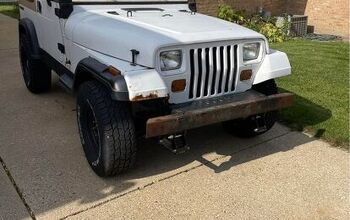Zetsche: Google Better Off As Supplier Than As Automaker
Google may have the right stuff to shake up the auto industry, but Dr. Z doesn’t believe the tech giant will ever be an automaker in its own right.
Reuters reports Daimler AG CEO Dieter Zetsche said as much in a meeting with analysts last week, when he suggested Google focus its energy on learning how cars are used instead of entering the industry as an automaker itself.
Meanwhile, he also continued to press his concerns about data privacy, in light of automakers and tech companies growing closer together as vehicles become more connected to the Internet:
When we talk about high safety with Mercedes, it does not apply specifically for protection from accidents, but this means safety of their personal data as well. To be able to provide that, we have to keep control, and we can’t do that when it is collected by Google.
Daimler plans to control data reported by its cars, protecting it from autonomous and connected vehicles alike.
Seattle-based writer, blogger, and photographer for many a publication. Born in Louisville. Raised in Kansas. Where I lay my head is home.
More by Cameron Aubernon


































Comments
Join the conversation
" ...but this means safety of their personal data as well. To be able to provide that, WE HAVE TO KEEP CONTROL, and we can’t do that when it is collected by Google." Capital letters are mine. What I read from that statement, is that Daimler want to keep that control, and the info and revenue generated from it, all for themselves.
There are a few things we shouldn't forget. 1. Fleet operators want data. They want to know where their vehicles are, have been, and how they are being driven. 2. Electric vehicles have a lot fewer moving parts, are easier to manufacture, simpler to maintain, are cleaner, quiet, and work well with computer controls and apps. 3. Apple is definitely studying cars. So in 6 years or so will our cars, trucks, and MC be fully manufactured or operated as electric Apple iMovers or Android Movers?
Isn't it ironic? Most people think of George Orwell's 1984 and Big Brother as something communist. Google knows there's no such thing as free will, only big data.
Apple vs Google rivalry continues. But note that Google was not able to make even viable mobile phone let alone car. It tried and quickly gave up with Motorola. So I am much more confident that rather Apple will make a car that people will line up to actually pay premium to buy. Even if Google make s a car it will most be actually mdae by Samsung. Samsung is already making cars, now it has to compete with Apple so they will adopt Google SW.